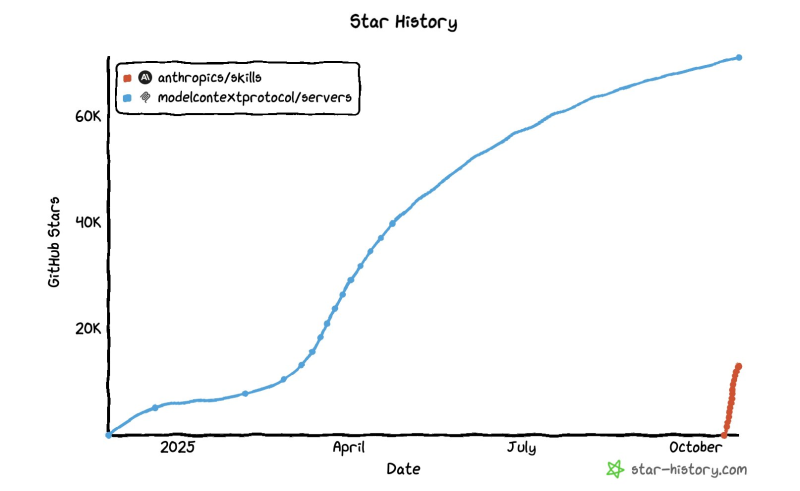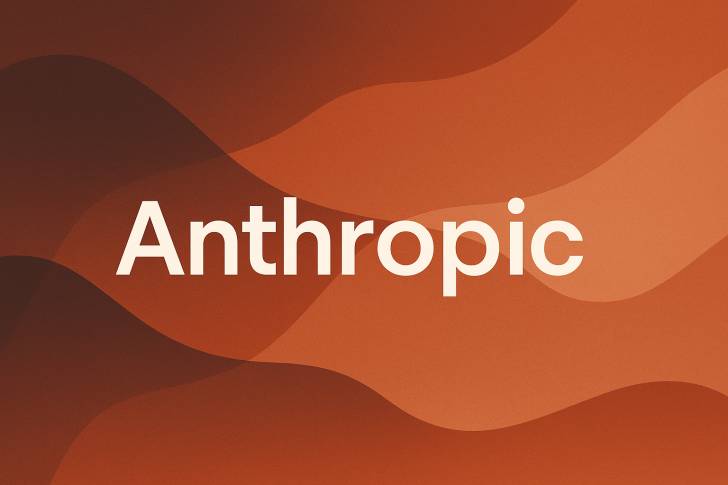● Something pretty wild is happening on GitHub right now. According to Alex Albert, Anthropic's new "Skills" repository is absolutely taking off—and it might be growing even faster than MCP did when it first launched.

● The numbers tell the story. Star History charts show that while MCP steadily accumulated over 60,000 stars throughout early 2025, the Skills repo has rocketed upward in just days since dropping in October. That kind of trajectory suggests developers are genuinely excited about what Anthropic is building here.
● So what exactly are "Skills"? Think of them as modular, plug-and-play components that let developers extend what Claude can do. It's an open-source framework designed to make AI interactions more flexible and customizable—basically letting developers build their own capabilities on top of the base model. It's a shift toward more agentic AI that can be tailored for specific use cases.
● But here's the thing: rapid growth isn't always smooth sailing. Developers are already flagging potential issues. When you've got tons of new repositories popping up everywhere, you run into problems with compatibility, security holes, and ecosystem fragmentation. If there aren't solid interoperability standards in place, things could get messy fast.
● From a business angle, though, Anthropic's open-source play is pretty smart. By opening things up and encouraging collaboration, they're lowering the barrier to entry for developers while building a stronger competitive position against OpenAI, Google, and Meta—all of whom are racing to build their own agent ecosystems. Some industry watchers think this community-driven approach might actually be more sustainable long-term than locked-down commercial APIs. There's even talk of alternative funding models, like an "ecosystem tax" where partners chip in a percentage of revenue instead of paying upfront fees.
● Zooming out, the competition between Skills and MCP represents something bigger happening in AI development. The community is shifting focus from just building models to building modular capabilities. These frameworks are essentially defining how AI systems will work together in the future.
 Peter Smith
Peter Smith

 Peter Smith
Peter Smith


